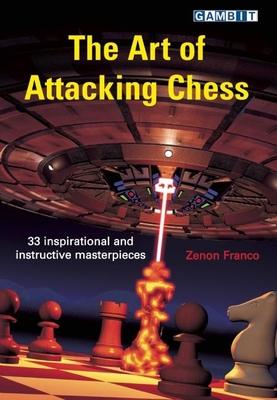
All chess-players love to play a smooth attacking game, flowing from start to finish, and sprinkled with spectacular ideas and sacrifices. However, few can do so regularly, and for most players, their collection of brilliancies missed far outweighs their creative successes. Innate talent plays an important role, but many of the skills needed for attacking chess can be learnt by study and practice. Here, one of the world's most experienced annotators has selected 33 superb examples, and explained them in a way that strips away the mystery. We see how the decision to attack is made, and which positional factors led to that decision being justified. We observe either a gradual build-up, or a lightning-fast storm, and understand why one approach or the other was necessary. Finally, we witness the final execution of the tactical blows. To check that we have truly grasped the ideas, Franco presents us with plentiful exercises, where it is we who have to perform the heroics.
All chess-players love to play a smooth attacking game, flowing from start to finish, and sprinkled with spectacular ideas and sacrifices. However, few can do so regularly, and for most players, their collection of brilliancies missed far outweighs their creative successes. Innate talent plays an important role, but many of the skills needed for attacking chess can be learnt by study and practice. Here, one of the world's most experienced annotators has selected 33 superb examples, and explained them in a way that strips away the mystery. We see how the decision to attack is made, and which positional factors led to that decision being justified. We observe either a gradual build-up, or a lightning-fast storm, and understand why one approach or the other was necessary. Finally, we witness the final execution of the tactical blows. To check that we have truly grasped the ideas, Franco presents us with plentiful exercises, where it is we who have to perform the heroics.
Paperback
$14.95